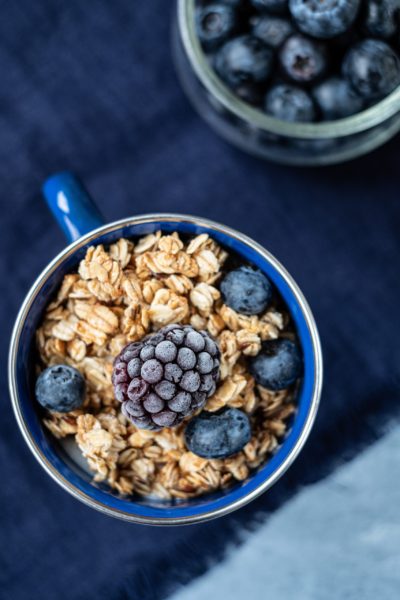 Navigating the impact of the global pandemic on our daily lives has caused many of us to experience significant amounts of stress. Stress can stimulate a heavy toll on your physical and mental well-being.
Navigating the impact of the global pandemic on our daily lives has caused many of us to experience significant amounts of stress. Stress can stimulate a heavy toll on your physical and mental well-being.
Many of us have tried different avenues to relieve the burden of stress, such as meditating, disengaging from social media, and exercising in your converted living rooms to home gyms. The impact that stress has on your overall health and wellness cannot be understated.
Stress can contribute to the breakdown of the intestinal walls allowing bacteria to slip through and cause inflammation. An interruption of nutrient absorption can occur causing an increase in gas production and discomfort. While short term (acute) stress can slow digestion, long term (chronic) stress can cause GI distress such as constipation, diarrhea, bloating, indigestion or upset stomach. Chronic stress can lead to more serious issues like irritable bowel syndrome and other GI disorders.
The Gut Microbiome
Your gastrointestinal tract is home to the human microbiome, the genome of all our microbes. The human microbiome is composed of a community of bacteria which serves a critical function in the development of immunity, defense against pathogens, production of short-chain fatty acids important in energy metabolism, and synthesis of vitamins and fat storage. In fact, because of the impact the microbiome has on the human body, it is considered an essential organ of the body, without which we could not function correctly (1).
Factors That Shape the Gut Microbiota
A healthy human gut can host up to at least 1000 different species of bacteria, viruses and fungi. This complex ecosystem is influenced by numerous factors including age, genetics, drug use, stress, smoking, and diet (2). In fact, the composition of your microbiome gains it’s diversity and complexity starting at birth – exposure (or non-exposure) of bacteria in the birth canal during vaginal birth, being bottle fed or breastfed – and is further developed as we age and interact with our environment – living with a dog, cat, or close to farm animals, the number of antibiotic treatments administered, and environmental toxin exposure.
Stress and Its Effects
In response to physical and mental stress, the body, specifically the adrenal glands, release a hormone called cortisol (3). Cellular cortisol receptors help to regulate blood sugar and metabolism, reduce inflammation, and formulate memory. When you experience stress, your body shifts into a “fight or flight” response, triggering the sympathetic nervous system. Cortisol helps to limit any functions that aren’t essential in a fight-or-flight situation. Instead of crumbling under the weight of stressful moments, tasks or events, our body’s built in response helps us to cope with the stress and eventually return back to homeostasis.
When experiencing constant state stress as you might be now during this pandemic, your cortisol levels can remain high which may lead to adrenal fatigue, gastrointestinal distress and premature aging. In fact, specifically in regards to digestive health, short term (acute) stress can slow digestion, long term (chronic) stress can cause GI distress such as constipation, diarrhea, bloating, indigestion or upset stomach. All of this stress can weaken the intestinal barrier, allowing gut bacteria to enter the body causing inflammation.
Additional signs and symptoms of high cortisol levels include:
- Rapid weight gain around the face, abdomen and chest
- Flushed face
- High blood pressure
- Changes in skin – thinning skin, easy bruising, acne
- Slowed healing
- Muscle weakness
- Severe fatigue
- Irritability and mood swings
- Difficulty concentrating
- Headaches
What Can We Do?
Well, being more mindful of our digestive health can help. Digestive health represents vital physiological processes which are central to overall well-being and quality of life; it’s important to help keep us feeling our best.
 Practice Relaxation Techniques
Practice Relaxation Techniques
Reduce stress by taking breaks from upsetting content coming from the news, social media or a close friend/family member. Just turn it off and turn on something that brings positive energy into your life. Try some gentle yoga, mediation or going for a walk to help to relieve your stress and create more mindful, restorative moments. Reduce tension and relieve stress with breathing exercises. Breathe deeply to relax and bring more calm to your day.
Move Your Body
Regular exercise releasing endorphins – yup those feel good hormones – that help to boost energy levels and help you to maintain a positive attitude. Do exercises that you love, whether it’s lifting weights, running, playing tennis or football tag with the family. Keeping your body moving will help support your energy levels and reduce stress. Aim for both 150 minutes of aerobic moderate-intensity aerobic activity every week and muscle strengthening activities on 2 or more days a week that work all major muscle groups (4).
Consume Prebiotics + Probiotics
According to the World Health Organization (WHO), probiotics are living microorganisms that when administered in adequate amounts, must confer a health benefit (5). Probiotics work with your gut microbiota (the trillions of bacteria living in your intestine) to break down non-digestible components of your diet to produce beneficial substances (such as vitamins or short-chain fatty acids), help with nutrient absorption, and out-compete the potentially harmful bacteria (6).
Regular consumption of probiotics can work together with your gut microbiota to help support digestive health, improve the bacteria makeup in the gut microbiome and create the ideal environment for more good bacteria to flourish and support digestion. Probiotics are commonly found in dairy and plant-based versions of yogurt + kefir; some fermented foods (kombucha, kimchi) and supplements. Simply check the label for LIVE CULTURES.
Prebiotics are the nutrients in food that nourish the microbiome in your body. They are commonly found in complex carbohydrates, such as apples, oats, beans, bananas, and peas. Consuming prebiotics will help stimulate the healthy bacteria and maintain gut health.
 Up Your Fiber Game & Hydrate Like A Boss!
Up Your Fiber Game & Hydrate Like A Boss!
Be sure to hydrate and get enough fiber in your diet to further improve digestion.
Hydration plays an important role in the digestion of food and the absorption of nutrients from the digestive tract. Drinking water and ingesting fiber helps to dissolve nutrients so that they may be absorbed into the bloodstream and delivered to the cells. Insufficient hydration will slow the digestive process and chronic poor hydration can lead to constipation.
Making an effort to drink more water can help make your bowel movements easier to pass, keeping you regular. Daily fluid requirements vary by age, but generally, otherwise healthy adults should aim to drink 25-30 ml per kg of bodyweight to remain hydrated daily.
Fiber plays an important role in gut health by fueling healthy gut microbiota and helping regulate bowel movements, keeping them soft and regular (7). Dietary fiber is the part of plant-based food that mostly passes through your digestive system without breaking down or being digested. There are two types of fiber: soluble and insoluble fiber.
Soluble fiber is the main type of fiber found in grains, legumes, nuts & seeds, fruits & vegetables. When digested it pulls in and absorbs water, partially dissolving into a gel-like substance, which slows down digestion. Conversely, insoluble fiber does not dissolve in water, and passes through the digestive tract pretty much intact, adding bulk to our stool. Insoluble fiber can help improve various digestive symptoms associated with irregular bowel movements.
The daily recommendation for fiber is 25g of fiber for women and 35g for men. Get fierce with fiber by including non-starchy vegetables, complex carbohydrates and fruits into your daily meals. One easy way to include fiber is to level up your breakfast by adding chia seeds and berries in your oatmeal.
The Takeaway
Managing stress is important in maintaining a healthy gut and improving our overall health. Daily stress is inevitable, but you can utilize techniques to help minimize the effects of stress on our gut health. Staying hydrated and consuming probiotics/prebiotics, and high-fiber foods will improve gut health by aiding in digestion and supporting regular bowel movements. Reducing stress by practicing relaxation techniques and getting regular exercise will also keep your digestive system running as it should. Remember, you can’t always avoid stress, but you can take steps to deal with stress in a positive way.


